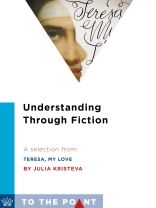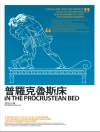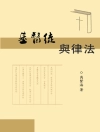Born in 1515, Teresa of Avila survived the Spanish Inquisition and was a key reformer of the Carmelite Order. Her experience of ecstasy, which she intimately described in her writings, released her from her body and led to a complete realization of her consciousness, a state Julia Kristeva explores as it was expressed in Teresa’s writing. Incorporating notes from her own psychoanalytic practice, as well as literary and philosophical references, Kristeva builds a fascinating dual diagnosis of contemporary society and the individual psyche while sharing unprecedented insights into her own character. Through her dazzlingly varied formats Kristeva tests the borderlines of atheism and the need for faith, feminism and the need for a benign patriarchy.
विषयसूची
Sources
1. How to Write Sensible Experience, or, of Water as the Fiction of Touch
2. The Imaginary of an Unfindable Sense Curled Into a God Findable in Me
Notes
लेखक के बारे में
Julia Kristeva is professor emerita of linguistics at the Université de Paris VII. A renowned psychoanalyst, philosopher, and linguist, she has written dozens of books spanning semiotics, political theory, literary criticism, gender and sex, and cultural critique, as well as several novels and autobiographical works, published in English translation by Columbia University Press. Kristeva was the inaugural recipient of the Holberg International Memorial Prize in 2004 “for innovative explorations of questions on the intersection of language, culture, and literature.”












